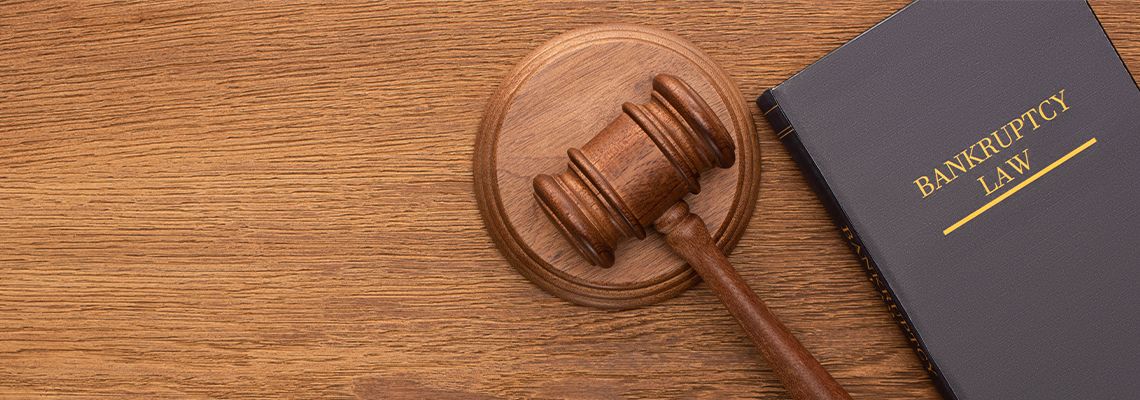
How Bankruptcy Affects Your Assets: What to Expect
Bankruptcy laws in Arkansas can be complicated, with many rules determining what happens to your assets during and after filing. People often wonder what they can keep, what might be sold, and what this means for their future.
At Rushing Law Firm, PLLC, we strive to make filing for bankruptcy transparent and manageable for our clients. Financial struggles are challenging enough without adding legal confusion. Located in El Dorado, Arkansas, we serve clients in Magnolia, Camden, and Crossett, as well as Union County, Columbia County, Ashley County, and Ouachita County.
What Happens to Your Assets in Bankruptcy?
When you file for bankruptcy, all your assets and debts are assessed to determine how they will be handled under the law. The specific impact on your property depends mainly on the type of bankruptcy you file. The two most common types for individuals are Chapter 7 and Chapter 13.
Chapter 7 Bankruptcy and Your Assets
Often called a "liquidation" bankruptcy, Chapter 7 bankruptcy involves selling your non-exempt assets to repay creditors. However, several personal assets are protected under state and federal exemptions, meaning you may not lose as much as you fear. Some key considerations that you should consider for your assets under Chapter 7 include:
Exempt vs. non-exempt assets: Exempt assets are those you can keep, such as your primary residence, household items, clothing, and in some cases, a personal vehicle up to a specific value. Non-exempt assets, like secondary properties or luxury items, may be sold to pay creditors.
Discharge of debts: Once the process is complete, the remaining unsecured debts, such as credit card balances or medical bills, are usually discharged.
State exemptions matter: Bankruptcy exemptions vary by state, which means the assets you can protect depend on where you live. Some states let you choose between federal and state exemption lists, providing greater flexibility in safeguarding your property.
Chapter 13 Bankruptcy and Your Assets
Chapter 13 bankruptcy, known as the "wage earner's plan," allows you to create a repayment plan during which you will repay your debts over three to five years. This means you can often keep your assets while catching up on missed payments. Some key considerations for the impact of Chapter 13 bankruptcy on your assets include:
Asset retention: You generally won’t have to sell your property under Chapter 13. Instead, you’ll reorganize your debts and work with the court to determine a manageable plan.
Mortgages and car payments: This type of bankruptcy can address overdue mortgage or car loan payments without losing the property. However, you’ll still be responsible for making regular payments after bankruptcy.
Debt discharge upon plan completion: Once you complete the repayment plan under Chapter 13, many remaining unsecured debts may be discharged, giving you a fresh financial start.
Bankruptcy Laws in Arkansas
When you file for bankruptcy in Arkansas, you can choose between state and federal exemption laws. Unfortunately, state law does not allow you to use both. You will need to select one. Some of the key bankruptcy exemptions recognized by Arkansas include:
Homestead exemption: If you own your primary residence in Arkansas, you may protect it under the homestead exemption up to a specific acreage limit (80 acres in rural areas or one acre in urban areas). However, certain equity limits may apply.
Personal property exemptions: Items like household furniture, clothing, and tools of trade are typically protected. A motor vehicle up to a certain value is also exempt.
Wages and retirement funds: Under Arkansas law, wages, pensions, and retirement accounts like 401(k)s are usually exempt from creditor claims.
Wildcard exemption: A small "wildcard" exemption allows you to protect additional assets that do not fall under a specific category.
Insurance benefits: Life insurance proceeds or cash values may be exempt, provided they meet certain conditions under Arkansas law.
Debts and Assets That Aren’t Typically Affected
Although bankruptcy may discharge many debts and liabilities, not all are eligible. Some debts, such as student loans, child support, and taxes, are generally non-dischargeable unless specific circumstances apply.
Additionally, secured debts tied to property, like car loans and mortgages, must be addressed through repayment plans or negotiations if you wish to retain the property.
Assets held jointly with another person, such as bank accounts or co-owned property, can also be affected depending on the type of bankruptcy you file. Transparency and accurate documentation of your financial situation are key during this process.
Bankruptcy Attorney in El Dorado, Arkansas
At Rushing Law Firm, PLLC, we want to remove the confusion and intimidation often associated with the legal system. If you're here for bankruptcy help, the last thing you need is pressure to act on something you aren’t ready for or don’t understand.
We have helped countless clients through difficult times with personal attention, knowledge, and skill. Located in El Dorado, Arkansas, we serve clients in Magnolia, Camden, and Crossett, as well as Union County, Columbia County, Ashley County, and Ouachita County. Reach out to us today to schedule a consultation.
